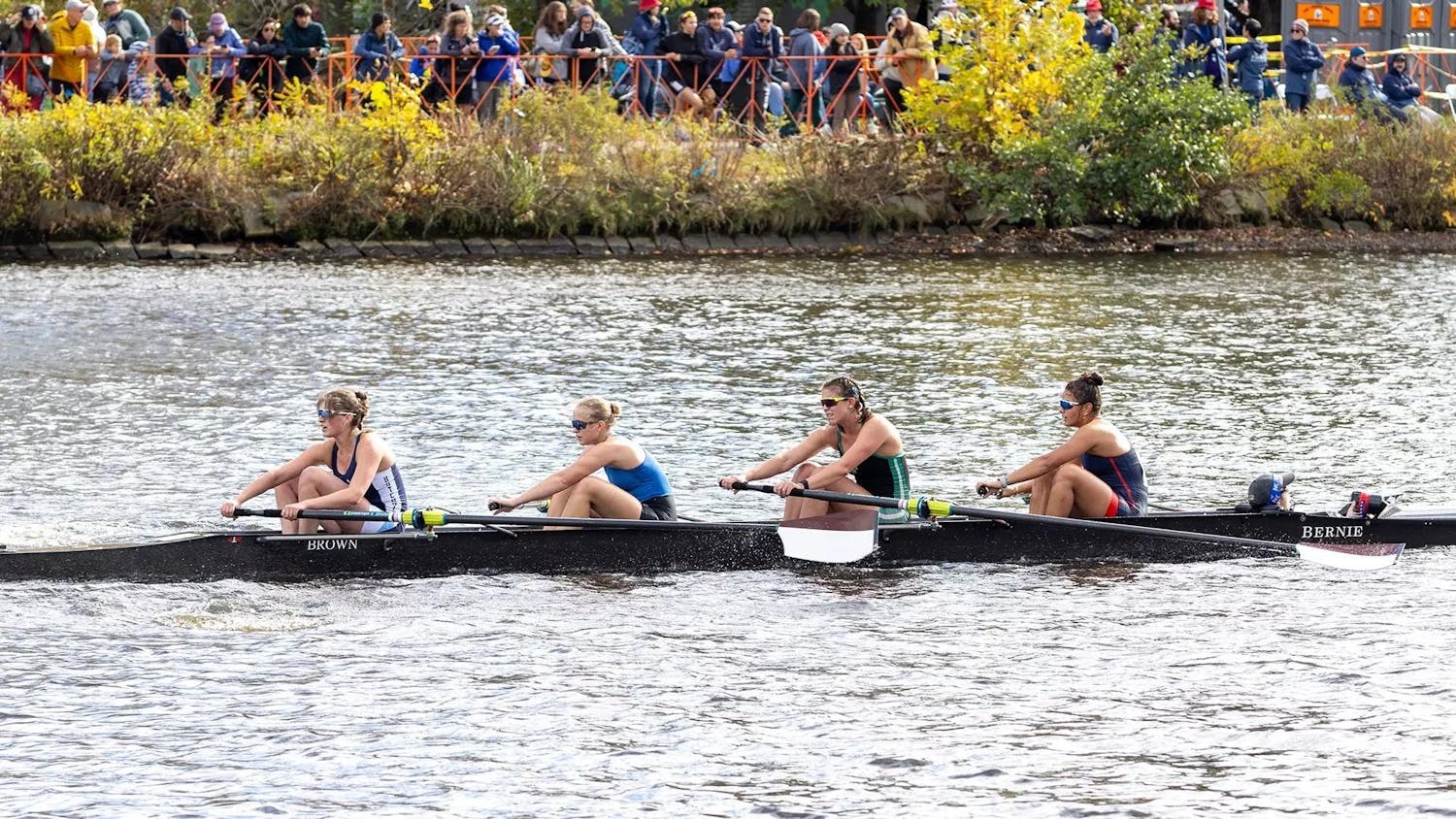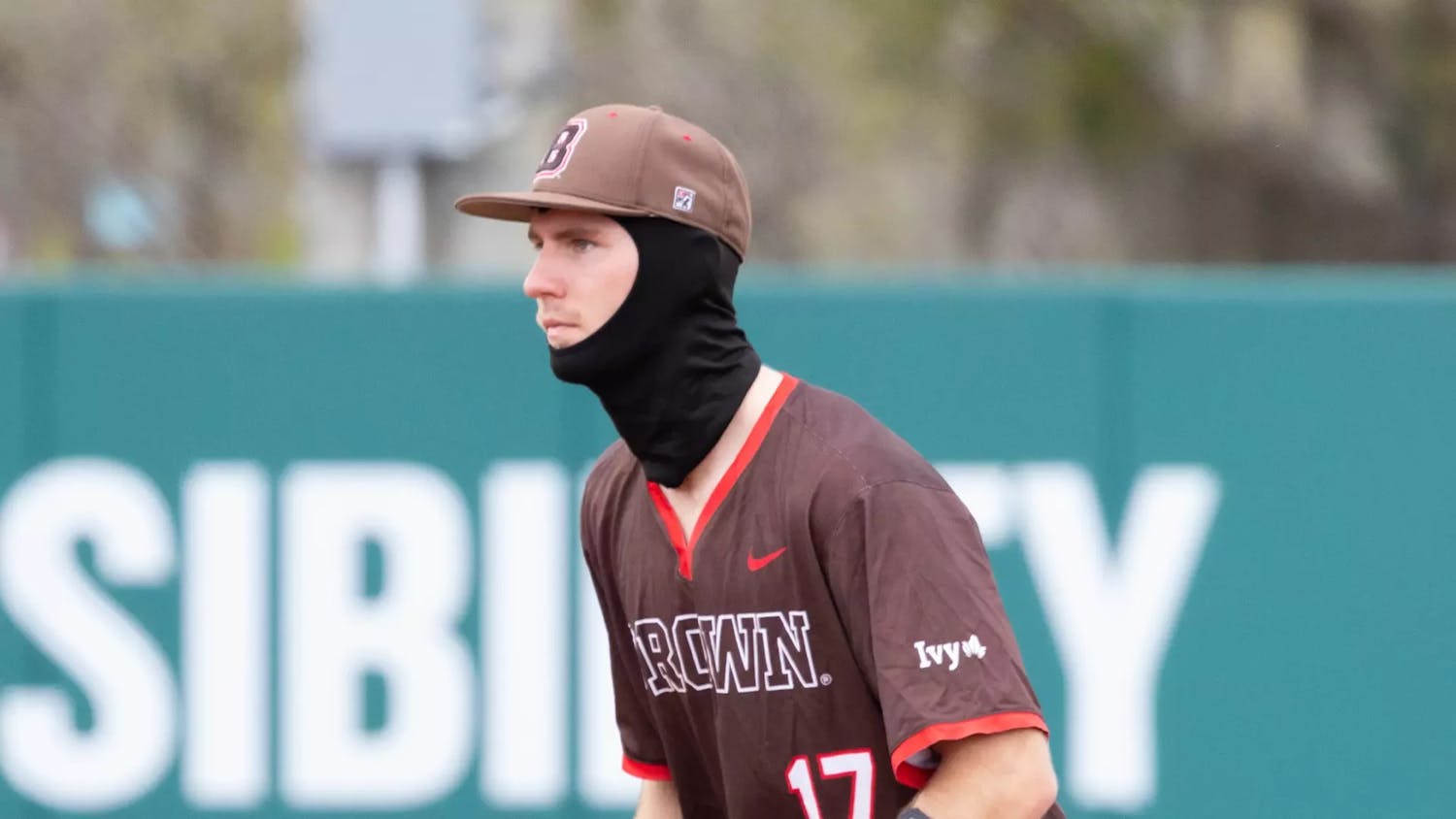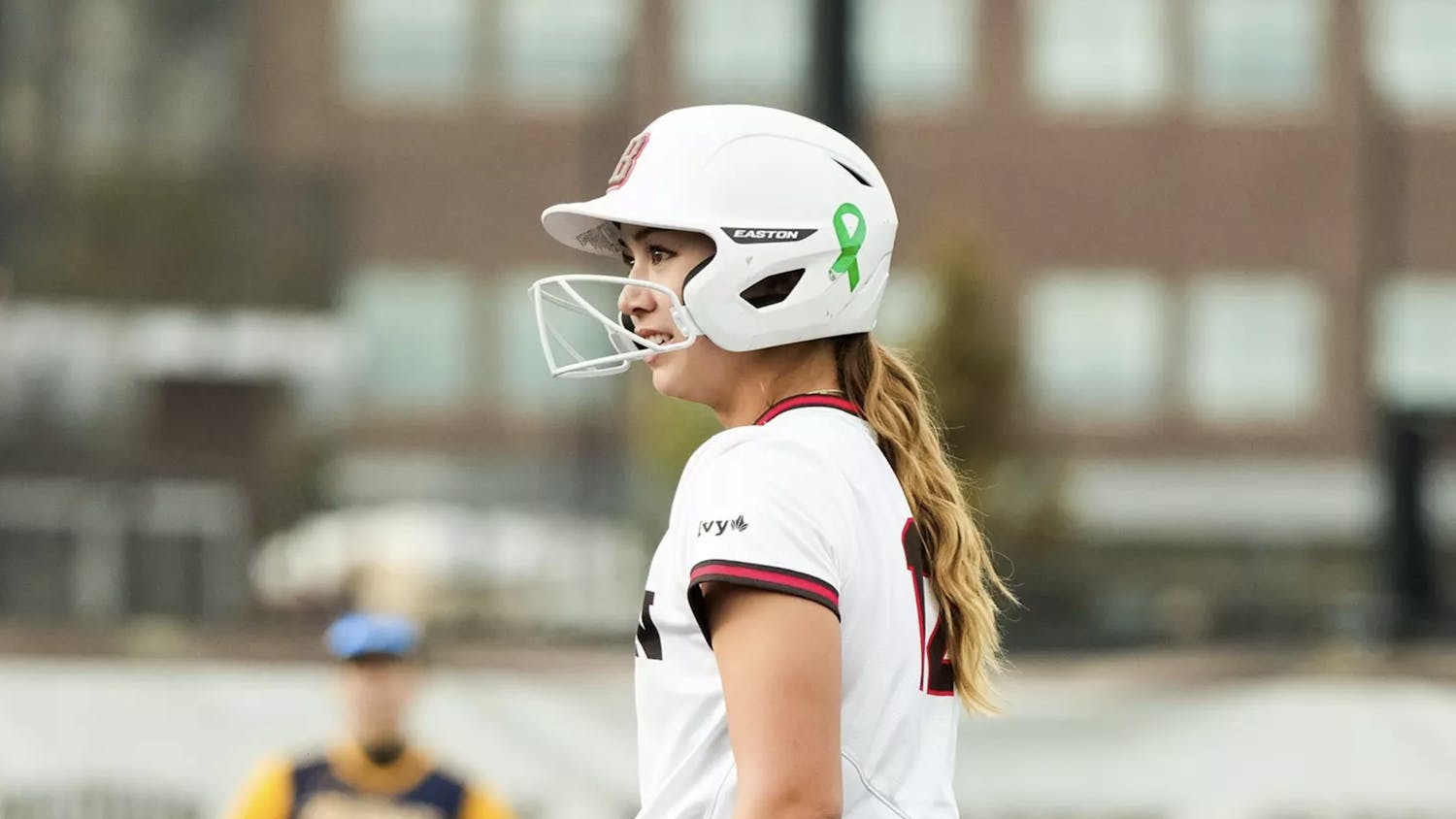Chris Nowinski, once known as the only Harvard graduate in professional wrestling, spoke as part of a panel in front of an almost full Salomon 101 Monday night. Nowinski spoke to both the personal effects and scientific research concerning concussions at Monday's event, which was part of a colloquium on the danger of concussions in sports.
Nowinski had his professional wrestling career cut short after sustaining six concussions and then became the co-founder and president of Sports Legacy Institute.
The other speakers were Robert Cantu, a leading medical expert on concussions; Professor of Orthopaedics J.J. Trey Crisco, a researcher in athletic concussions; Sean Morey '99, a current NFL player and the co-chair of the NFL Players Association Traumatic Brain Injury Committee; and Alyssa Blood '11, a former basketball player at Brown whose career was cut short by concussions she sustained while playing.
"Where do you start?" Nowinski said. "I think when you look at brains, it's the end game. You look at these guys in their 30s and 40s, and they have ruined their lives."
Nowinski first became seriously interested in the potential harm caused by concussions after learning of former NFL star Andre Waters' suicide at age 44. Believing that the player's depression was a result of head trauma sustained during Waters' NFL career, Nowinski began to research the subject and speak out about the dangers of concussions — eventually testifying before Congress on the NFL's policies on concussions.
The other panel members credited Nowinski's efforts as helping to persuade the NFL to adopt new rules to better protect players and take responsibility for the harms caused by the game.
Blood and Morey told their personal stories about concussions to a crowd that included Brown athletes and coaches and members of the local medical community.
"You don't need to play football to get concussions," Blood said. "I had concussions playing tennis, softball and basketball. I guess it goes to show that although the research is geared towards football and boxing, it is a huge problem" across all sports.
In light of the increasing information demonstrating the risk of taking hits, Morey spoke of his current efforts to better protect NFL players. Morey recently met with the NFL competition committee at the NFL Combine to discuss possible rule changes designed to limit dangerous blows. Still, despite the inherent risk involved, Morey said eliminating concussions altogether is unrealistic.
"Contact sports provide an opportunity to learn leadership skills, accountability," Morey said. "It builds character."
In contrast to the personal accounts provided by Blood and Morey, Cantu and Crisco gave more scientific perspectives on concussions.
Despite the increase in concern about concussions over the last few years, Cantu said there was a relative lack of knowledge concerning concussions.
"Statistics say there are two to three million each year but we don't know," Cantu said.
Though Cantu conceded that concussions and head trauma varied greatly on an individual basis, he still advocated extreme caution for everyone.
Agreeing with Cantu's approach, Crisco proposed the possibility of limiting the number of traumatic hits in contact sports as pitch-count limits have been enforced in Little Leagues across the country.
Crisco also spoke of the need to better understand what exactly causes concussions — a question he hopes his research involving athletes at Brown and elsewhere will help to answer.




